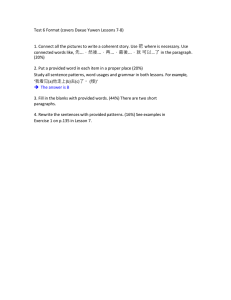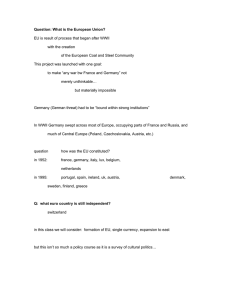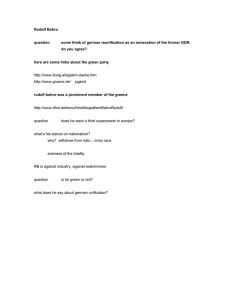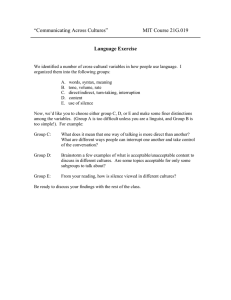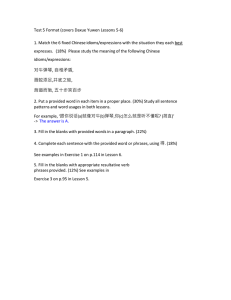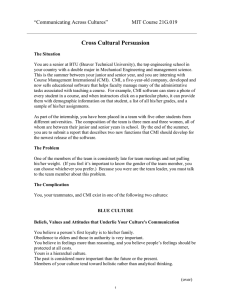G.019 “Communicating Across Cultures” MIT Course 21 SOME QUESTIONS TO ASK ABOUT CULTURE
advertisement
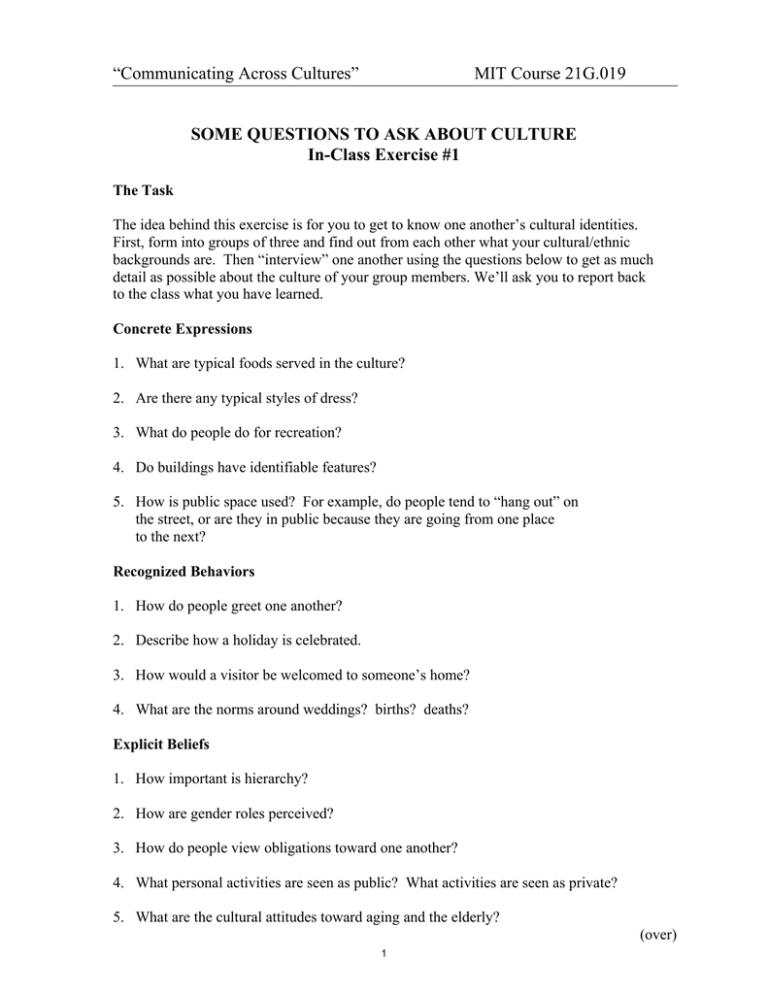
“Communicating Across Cultures” MIT Course 21G.019 SOME QUESTIONS TO ASK ABOUT CULTURE In-Class Exercise #1 The Task The idea behind this exercise is for you to get to know one another’s cultural identities. First, form into groups of three and find out from each other what your cultural/ethnic backgrounds are. Then “interview” one another using the questions below to get as much detail as possible about the culture of your group members. We’ll ask you to report back to the class what you have learned. Concrete Expressions 1. What are typical foods served in the culture? 2. Are there any typical styles of dress? 3. What do people do for recreation? 4. Do buildings have identifiable features? 5. How is public space used? For example, do people tend to “hang out” on the street, or are they in public because they are going from one place to the next? Recognized Behaviors 1. How do people greet one another? 2. Describe how a holiday is celebrated. 3. How would a visitor be welcomed to someone’s home? 4. What are the norms around weddings? births? deaths? Explicit Beliefs 1. How important is hierarchy? 2. How are gender roles perceived? 3. How do people view obligations toward one another? 4. What personal activities are seen as public? What activities are seen as private? 5. What are the cultural attitudes toward aging and the elderly? (over) 1 Deeply Embedded Beliefs 1. How important is the individual in the culture? How important is the group? 2. How is space used (e.g., how close should two people who are social acquaintances stand next to one another when they are having a conversation?) 3. How is time understood and measured? (e.g., how late can you be to a business appointment before you are considered rude?) 4. Is change considered positive or negative? 5. What are the criteria for individual success? 6. What is the relationship between humans and nature? (e.g., do humans dominate nature? does nature dominate humans? do the two live in harmony?) 7. How is divine power viewed in relation to human effort? 8. Is the culture a high-context or low-context one? 9. What is humorous? 10. How do individuals “know” things? (e.g., are people encouraged to question things? are they encouraged to master accepted wisdom?) 11. Are people encouraged to be more action-oriented or to be more contemplative? 12. What is the role of luck in people’s lives? 2 MIT OpenCourseWare http://ocw.mit.edu 21G.019 / 21G.021 Communicating Across Cultures Spring 2005 For information about citing these materials or our Terms of Use, visit: http://ocw.mit.edu/terms.
